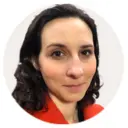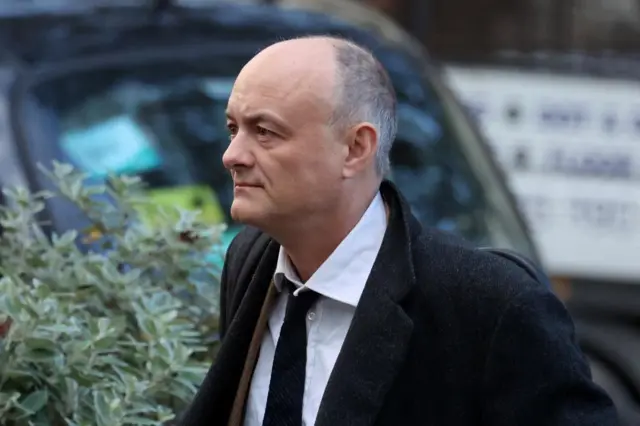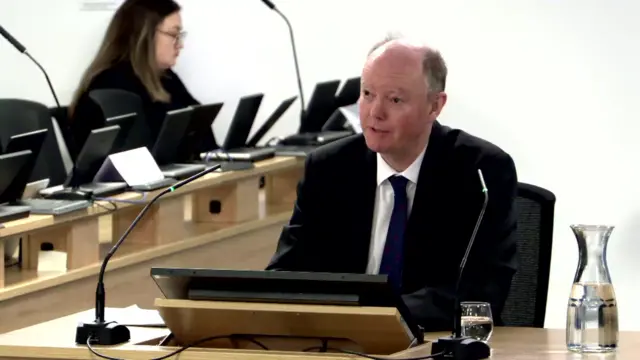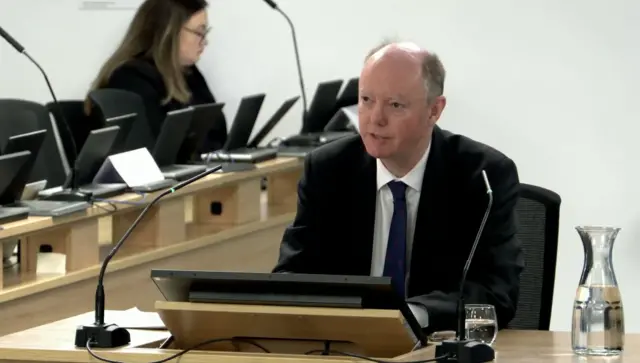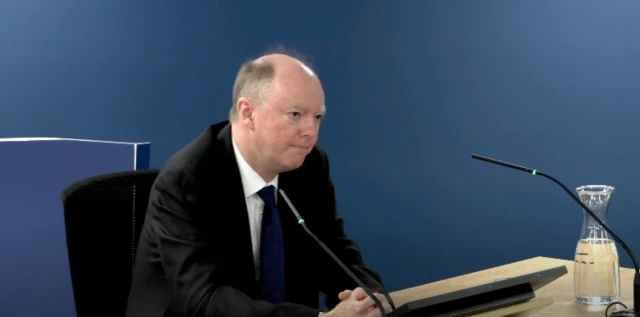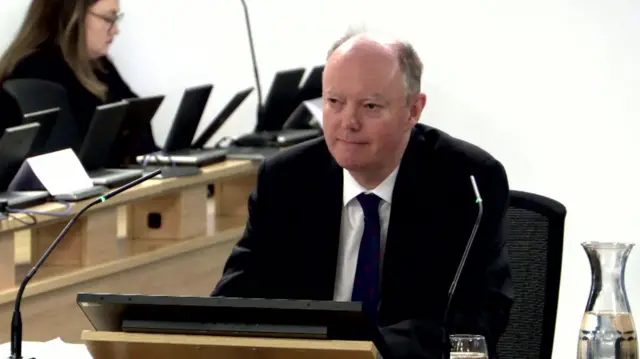All the options were very bad, some were a bit worse - Whittypublished at 12:38 GMT 21 November 2023
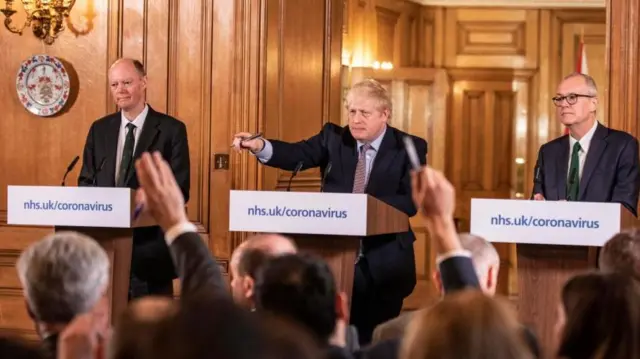 Image source, EPA
Image source, EPAChris Whitty, then-PM Boris Johnson and Chief scientific officer Sir Patrick Vallance at a Covid press conference on 16 March 2020
The inquiry's lead lawyer Hugo Keith KC continues with his line of questioning on the distinctions between the technical advice given by scientific advisers, and political decisions being made by ministers.
Asked if there were any good or easy outcomes, Whitty says there were two things to consider right from the beginning.
First, "there were no good options...all the options were very bad, some a bit worse, some very, very bad," he says.
"And the second was this was going to go on for a very long time" - which he said took time for some people to internalise.

